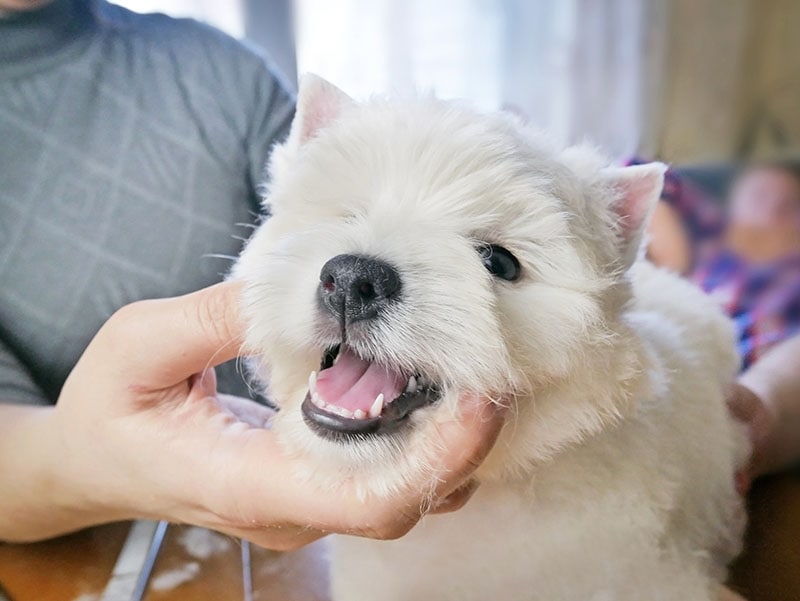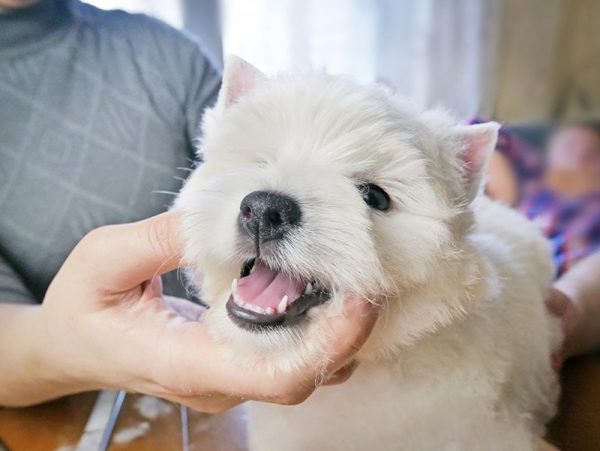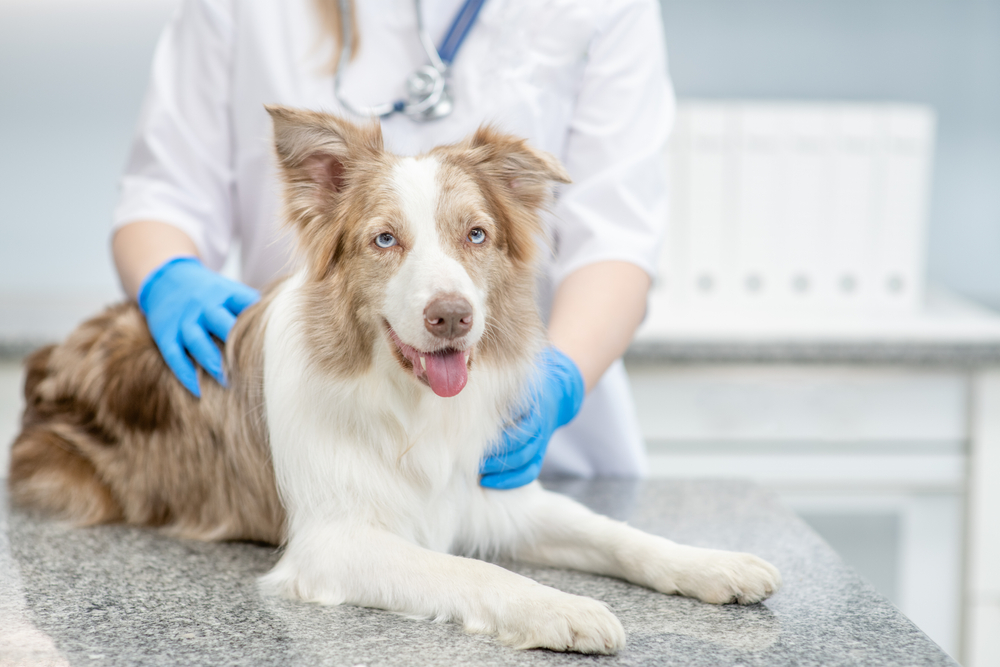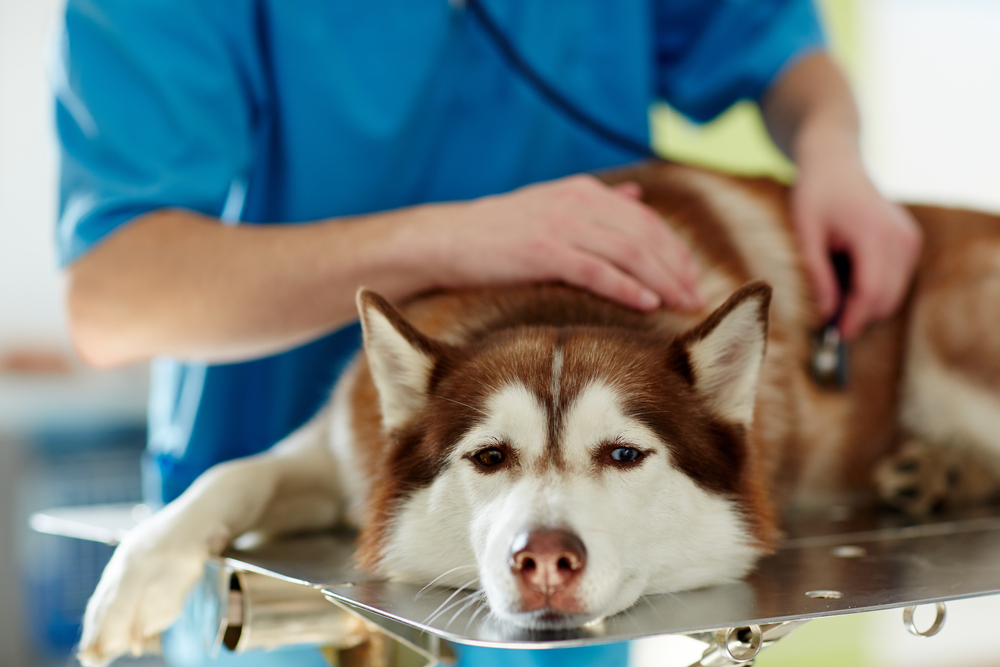Click to Skip Ahead
Puppies are enchanting, and we love everything about them. That even extends to their breath in most cases. If you’ve ever been nose to nose with a puppy and they yawned or gave you a loving lick, you’ve smelled the slightly sweet smell they give off. This is the famous puppy breath, which some seem to love, and others really dislike! A few factors are thought to contribute to puppy breath, including drinking milk and teething, and it usually fades after a few months.
What Causes Puppy Breath?
There are a few theories about what causes puppy breath. If your puppy is very young and still drinking milk, the sweet smell permeating the air may be from the digesting lactose in their bellies and gasses released in their breath. However puppy breath often lingers after dogs are fully weaned, so this is unlikely to be the whole story. It’s thought that this sweet breath is due to other factors as well, including their clean teeth and the type of bacteria present in their mouths and GI tracts when they are young.
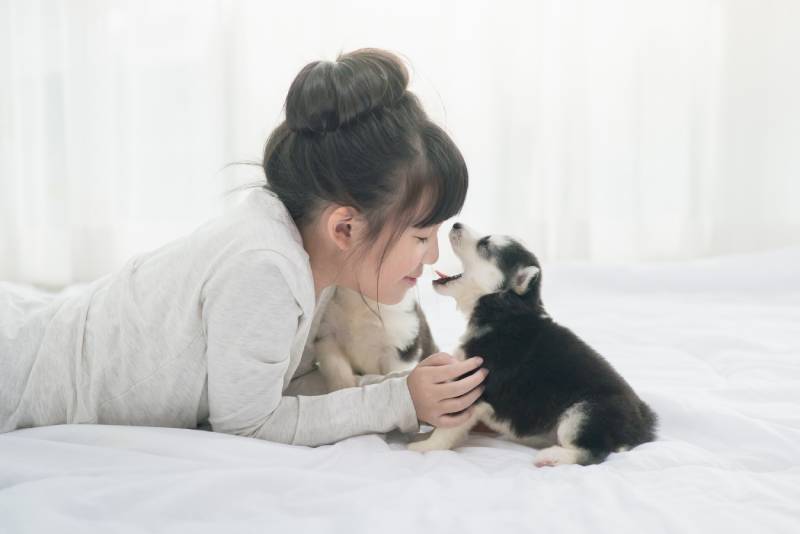
How Long Does Puppy Breath Last? Can I Treat It?
Puppy breath typically disappears after a couple of months. By the time your pup is 6 months of age and all their adult teeth are through, it will be gone, suggesting that teething plays a part in causing this distinctive smell.
No treatment is needed unless your puppy’s breath is smelling bad. If your pup has their teeth cleaned regularly, is not sick, and has eaten something pungent that is lingering longer than you’d like, you can try to minimize the smell by using tooth wipes or giving their teeth a gentle brush with dog-friendly toothpaste. Most odors will dissipate quickly if caused by food, so try to avoid the face kisses while they’re still stinky!
Why Does My Puppy’s Breath Smell Bad?
However, if your puppy has a foul odor coming from their mouth, it may indicate a health problem. Puppies shouldn’t have bad breath since either they haven’t developed teeth or they’ve just sprouted them. As we mentioned, some puppies might have bad breath due to what they’ve eaten, while in others, it can indicate an underlying condition that needs treatment.
If your puppy’s breath smells bad, let’s have a look at some of the possible causes.
Something They’ve Eaten
We’ve all been there. Your puppy rests peacefully one moment, and then they’re running past you with something horrific in their mouth. If your puppy eats puppy food, their breath will smell like the food, and if they consume cat poop, the odor will smell like feces. Your puppy’s breath may be very stinky if they’ve sampled some poop in the yard or litter box, including eating their own (coprophagia).

Teething Problems
Some puppies get a slight smell to their breath when teething, but it shouldn’t stay around for more than a week or two while their teeth are coming through. If your puppy’s breath smells bad, there’s almost certainly something else going on, such as an impacted tooth.
While dental disease is the most common cause of halitosis in adult dogs, young puppies are less likely to have a dental disease since damage from the bacteria build-up takes time.
Young dogs with retained deciduous (baby) teeth are more likely to get periodontal or dental disease, as the overlapping and overcrowding of the teeth traps more debris, allowing more bacteria to grow.
Mouth Injury
Puppies are known for chewing on anything they can get their mouths on. Injuries and foreign bodies getting stuck in their mouths can cause a foul odor. If you notice a bad smell and your pup is showing any signs of pain or difficulty eating and chewing, then you need to get them checked by your vet.
Digestive Problems
Tummy trouble can alter your dog’s gut bacteria and cause bad breath. This will typically be accompanied by other signs, such as vomiting and diarrhea.
If you are concerned about the health and well-being of your pet, seek veterinary advice for the best course of action.

If you need to speak with a vet but can’t get to one, head over to PangoVet. It’s an online service where you can talk to a vet online and get the personalized advice you need for your pet — all at an affordable price!
Other Health Problems
In rare cases, serious underlying conditions, such as kidney disease and liver disease, can contribute to foul puppy breath. Kidney disease in puppies is usually caused by congenital defects that cause poorly functioning kidneys or ingesting something toxic to the kidneys (a nephrotoxin).
Kidney disease can cause a build-up of waste products, including urea, in the blood. If urea is allowed to build in the blood, it can cause smelly breath. Vomiting, weight loss, increased thirst, and increased urination are signs that a puppy’s kidneys aren’t working properly. If your puppy displays these signs, you should take them to a veterinarian immediately.
Liver disease in puppies is usually caused by a liver shunt (portosystemic shunt). A defect in blood vessels means blood bypasses the liver, and the liver can’t filter out the toxins from the blood like it usually can. Puppies with a congenital liver shunt can exhibit bad breath, disorientation, stunted growth, and seizures
Conclusion
Puppy breath is a normal part of a dog’s development and usually isn’t anything to worry about. It usually coincides with both weaning and teething and can last a few months. So, if you are one of the people who loves this smell, enjoy it while it lasts! If your puppy begins to have a foul smell in their mouth, there’s usually something wrong, and your veterinarian should examine them. If you want your puppy to keep their breath fresh, make sure you start brushing their teeth regularly to help keep them free of dental disease.
Featured Image Credit: LanKS, Shutterstock

